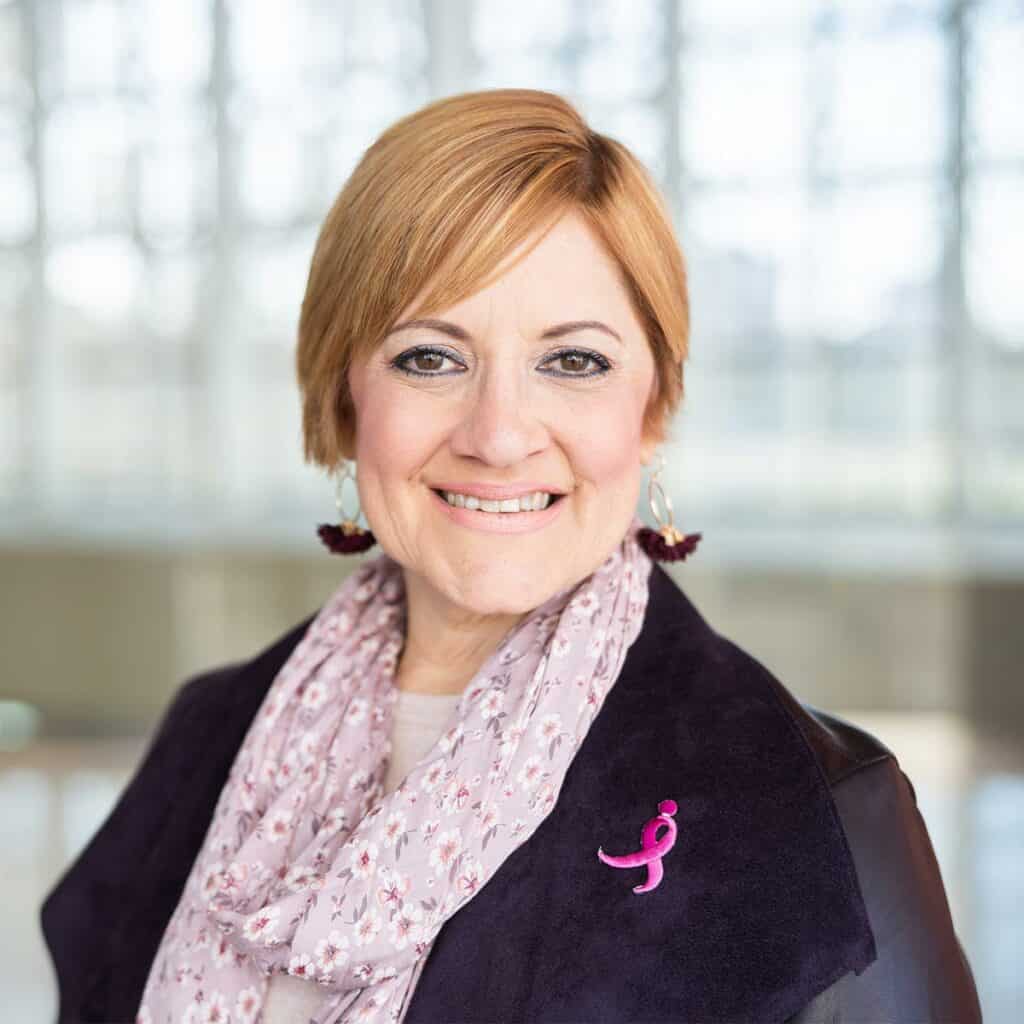
As a two-time breast cancer survivor, Susan G. Komen Scholar Dr. Barbara Segarra-Vazquez knows the importance of ensuring historically marginalized populations are involved in research to find the cures.
Barbara started having mammograms, which showed she had dense breasts, before she turned 40 due to having fibrocystic breast tissue. Her routine mammogram in Puerto Rico returned a negative report in April 2003. Seven months later, Barbara felt a lump. Following a biopsy, she was diagnosed at age 42 with stage 2B invasive ductal carcinoma. She was terrified that her sons, Daniel and Diego, would grow up without their mother.
“Now, 19 years later, we know breast density is associated with a higher risk of breast cancer, and it can mask breast cancer on a mammogram,” Barbara said. “I was the first one in the family. Nobody else had breast cancer. It was something very new for me.”
Barbara underwent a lumpectomy and an axillary lymph node dissection in 2004, followed by six months of chemotherapy and 34 rounds of radiation therapy. Following her diagnosis, Barbara became a breast cancer research advocate and immediately noticed the lack of other Hispanic advocates involved in research programs.
Thirteen years after her original diagnosis, Barbara’s breast cancer returned, spreading to her skin. After undergoing a mastectomy in 2017, Barbara has continued to serve as a research advocate by encouraging more Hispanics to participate in breast cancer research and clinical trials.
She knows a lack of breast cancer educational materials available in multiple languages serves as a barrier for historically marginalized communities to participate in research. Hispanic people with cancer are historically underrepresented in clinical trials.
“I was blessed enough to have all my treatment in Puerto Rico where everybody speaks Spanish and I could understand everything, but there are a lot of people in the United States who still don’t speak English, or English is their second language,” Barbara said. “To manage a diagnosis without even understanding what is happening to you is even more challenging.”
As the Chair of the Komen Advocates in Science Steering Committee and a faculty member at the University of Puerto Rico, Barbara hopes to encourage more Hispanic people and other historically marginalized populations to participate in breast cancer research by joining ShareForCures, Komen’s groundbreaking new research registry.
ShareForCures invites people to safely share information about their breast cancer experience through Komen’s secure online platform to provide researchers with a more diverse pool of data, furthering the mission to accelerate discoveries in the search for cures.
“Maybe my data alone doesn’t say anything, but when researchers get mine with Juanita and Maria and Rosa and all these other people, then they might be able to see a pattern that was not noticed before,” Barbara explains.
ShareForCures will ultimately be translated into multiple languages, including Spanish, to ensure that a diverse population of breast cancer patients and survivors can participate in their own language.
“It is important to encourage more historically marginalized populations to participate in research so we can keep finding new medications or new ways to treat patients. Because the data is so scarce now, having it joined together through ShareForCures will give us a new opportunity to see patterns that have not been noticed yet,” Barbara said.
“There is a lack of information on minorities and genetic testing, as well as other aspects of research. If conclusions are going to be made about certain groups of people without the data to support it, then there’s going to be a greater gap for disparity. We hope ShareForCures can help change that.”
When you join ShareForCures, you can help accelerate the search for breast cancer breakthroughs. With thousands of others, you can help make our vision of a world without breast cancer a reality. Learn more about ShareForCures today.
Komen has resources available in Spanish and other languages on our Translated Resources page.



